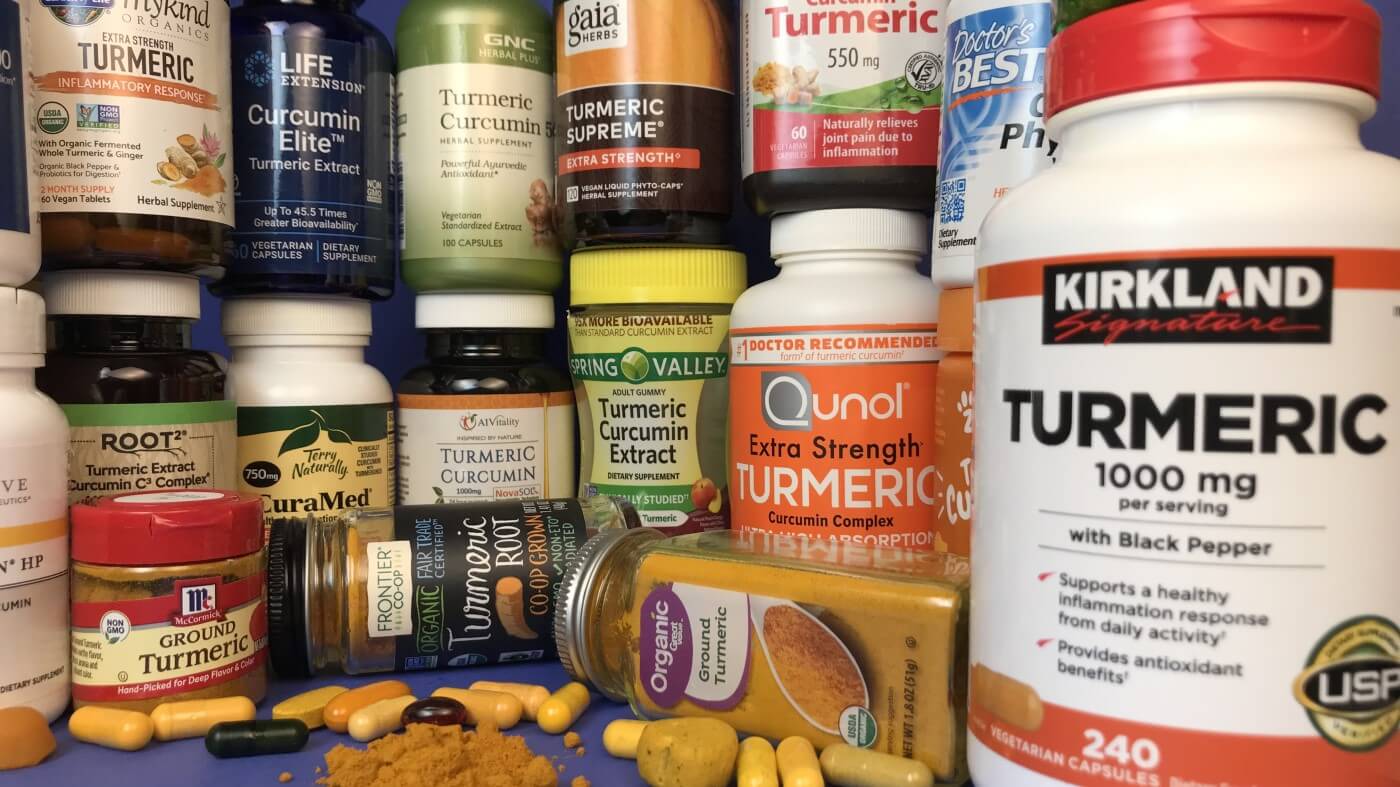Turmeric supplements can cause digestive issues and interact with certain medications. They may also lead to allergic reactions.
Turmeric, a popular spice in Indian cuisine, offers numerous health benefits. Many people take turmeric supplements to reduce inflammation and pain. Despite its advantages, these supplements have potential drawbacks. Overuse or incorrect dosage can lead to adverse effects. It’s crucial to be aware of these risks before incorporating turmeric supplements into your routine.
Consulting a healthcare professional can help you make an informed decision. By understanding both the benefits and disadvantages, you can use turmeric supplements safely and effectively. Always prioritize your health and well-being when considering any supplement.

Introduction To Turmeric Supplements
Turmeric supplements have become very popular. They are known for their bright yellow color and strong flavor, and many believe they offer health benefits.
People use turmeric supplements to help with many conditions. But there are disadvantages too. In this blog, we will explore these downsides.
The Popularity Surge
The popularity of turmeric supplements has surged in recent years. Many celebrities and health experts promote them, and the internet is full of articles praising turmeric’s benefits.
Because of this, people think turmeric supplements are a miracle cure. They believe these supplements can solve many health problems.
Common Uses And Claims
People take turmeric supplements for various reasons. Some common uses include:
- Reducing inflammation
- Improving digestion
- Boosting immunity
There are many claims about turmeric’s benefits. Some people say it can help with arthritis pain, and others believe it can fight infections.
Some even think turmeric can prevent serious diseases. These claims make turmeric supplements very attractive. But it is important to know the disadvantages too.
Potential Side Effects
Many people take turmeric supplements for their health benefits. But they can have side effects. This section will cover some of the possible issues. Knowing these can help you make an informed choice.
Gastrointestinal Issues
Turmeric supplements can cause stomach problems. Common issues include:
- Stomach upset: Some people feel uneasy in their stomachs.
- Diarrhea: Loose stools can occur.
- Nausea: Feeling sick to your stomach is possible.
These issues often happen with high doses. Always start with a small amount.
Risk Of Bleeding
Turmeric can thin the blood. This increases the risk of bleeding. It can be dangerous for people who:
- Take blood thinners: The combined effect can be too strong.
- Have bleeding disorders: Conditions like hemophilia can worsen.
- Are about to have surgery: Bleeding risk is higher during operations.
Consult your doctor if you fall into these groups. They can advise you on the safe use of turmeric.
Drug Interactions
Turmeric supplements are popular for their health benefits. However, they can interact with some medicines, leading to serious health problems.
Impact On Blood Thinners
Turmeric can interact with blood thinners. Blood thinners help prevent clots. If you take both, you may increase your bleeding risk. Turmeric has a blood-thinning effect, which makes it dangerous with medicines like warfarin or aspirin.
Common blood thinners include:
- Warfarin
- Aspirin
- Heparin
- Clopidogrel
Combining these with turmeric can lead to excessive bleeding. Always consult your doctor before using turmeric supplements.
Effects On Diabetes Medication
Turmeric can also affect diabetes medication. It can lower blood sugar levels. This might sound good, but it can be harmful. If you take diabetes medicine, adding turmeric might drop your blood sugar too low.
Common diabetes medications include:
- Metformin
- Insulin
- Glipizide
- Glyburide
Combining these with turmeric can cause hypoglycemia. Symptoms include dizziness, confusion, and fainting. Consult your doctor before adding turmeric to your routine.
Difficulty In Absorption
Turmeric supplements are popular for their potential health benefits. However, they come with some challenges. One major issue is the difficulty in absorption. The body finds it hard to absorb turmeric effectively, which limits its benefits.
Bioavailability Challenges
Turmeric’s bioavailability is low, which means the body can’t use much of it. The compound curcumin in turmeric is not easily absorbed, so even high doses of curcumin may not provide the desired effects. The liver quickly breaks down curcumin, reducing its effectiveness.
Here is a table to illustrate the bioavailability of curcumin:
| Form | Bioavailability |
| Raw Turmeric | Low |
| Curcumin Supplements | Moderate |
| Enhanced Formulations | High |
Combination With Other Agents
Combining turmeric with other agents can help. Black pepper is often used. It contains piperine, which boosts absorption. Some supplements include piperine for this reason. Other natural fats can also help. These include avocado, olive oil, and coconut oil.
Here are some tips to enhance absorption:
- Take turmeric with black pepper.
- Include healthy fats in your diet.
- Choose supplements with enhanced formulations.
Using these methods can improve the effectiveness of turmeric supplements. This helps the body better absorb and use the curcumin.
Contamination Concerns
Turmeric supplements offer numerous health benefits. Yet, they also come with contamination concerns. These concerns can pose risks to your health. The most common issues are the presence of heavy metals and adulteration risks.
Presence Of Heavy Metals
Heavy metals like lead, arsenic, and mercury can contaminate turmeric supplements. These metals can enter the turmeric during cultivation and processing. Consuming these contaminated supplements can harm your health.
Heavy metals can cause severe issues such as:
- Neurological damage
- Kidney problems
- Digestive issues
Always check for third-party testing. This can help ensure your turmeric supplement is free from heavy metals.
Adulteration Risks
Adulteration refers to the addition of other substances to turmeric supplements. These substances can include artificial colorants, fillers, and other spices. Adulteration can reduce the effectiveness of the supplement.
Common contaminants in turmeric supplements are:
- Artificial colorants like metal, yellow
- Chalk powder
- Starch from other sources
To avoid adulteration, buy supplements from reputable brands. Look for certifications and customer reviews. This can help ensure the purity of the turmeric supplement.

Credit: www.consumerlab.com
Regulatory Loopholes
Turmeric supplements have become popular for their health benefits. But, there are regulatory loopholes that consumers should be aware of.
Lack Of FDA Oversight
The FDA does not regulate turmeric supplements like drugs, which means manufacturers can sell products without proving they are safe or effective. Many people believe FDA approval is needed for all health products, but this is not true for dietary supplements.
Lack of oversight can lead to misleading labels. Consumers might think they are getting pure turmeric, but they might actually be getting fillers and additives. This can pose risks to health, especially for those with allergies or sensitivities.
Inconsistent Quality And Potency
Quality and potency vary widely among turmeric supplements. One brand might have high levels of active ingredients, while another brand might have very few. This inconsistency can make it hard to achieve the desired health benefits.
Below is a table illustrating the variability in turmeric supplements:
| Brand | Curcumin Content | Fillers/Additives |
| Brand A | 95% | None |
| Brand B | 50% | Yes |
| Brand C | 30% | Yes |
Consumers may pay a premium for a product that needs more potency, which can lead to wasted money and unmet health goals.
To ensure quality, look for third-party testing. Third-party testing can verify the supplement’s content and purity. However, not all brands conduct these tests.
Impact On Gallbladder And Kidney Health
Turmeric supplements are popular for their health benefits. But they might affect your gallbladder and kidneys. Learn more about these possible side effects.
Gallstones And Bile Duct Blockage
Turmeric can increase bile production in the gallbladder, which may be a problem for those with gallstones. More bile can lead to bile duct blockages, which can cause pain and other health issues.
People with gallbladder problems should avoid turmeric supplements. They should talk to their doctor before taking them.
Signs of bile duct blockage include:
- Severe abdominal pain
- Nausea and vomiting
- Yellowing of the skin (jaundice)
Kidney Stone Formation
Turmeric contains oxalates, which can bind with calcium in the kidneys and lead to kidney stone formation. People prone to kidney stones should limit their turmeric intake.
The table below shows the oxalate content in turmeric:
| Turmeric Form | Oxalate Content (mg per 100g) |
| Raw Turmeric | 61 |
| Turmeric Powder | 276 |
Kidney stones can cause severe pain. Symptoms include:
- Sharp pain in the back or lower abdomen
- Blood in urine
- Frequent urination
Consult a healthcare provider if you have kidney issues. They can advise on safe turmeric use.
Allergic Reactions And Dermatological Effects
While turmeric supplements offer many health benefits, they may also cause allergic reactions and dermatological effects. Individuals should be aware of these potential issues before incorporating turmeric supplements into their routine.
Skin Irritations
Some people might experience skin irritations after taking turmeric supplements. These irritations can manifest as redness, itching, or even rashes. The following table details common skin irritations associated with turmeric supplements:
| Type of Irritation | Symptoms |
| Redness | Inflamed, red skin areas |
| Itching | Persistent urge to scratch |
| Rashes | Bumpy, irritated skin |
Allergic Response
Some individuals may have an allergic response to turmeric supplements. This can include symptoms such as swelling, hives, or difficulty breathing. Allergic responses can vary in severity and might require medical attention.
- Swelling: This can occur in the face, lips, or throat.
- Hives: Raised, red, itchy welts on the skin.
- Difficulty Breathing: This is a serious symptom and needs immediate care.
If you notice any of these symptoms after taking turmeric supplements, it is important to discontinue use and consult a healthcare provider.
To minimize the risk of adverse effects, always start with a low dose and monitor your body’s response. Patch tests can also help determine if you are prone to skin irritations or allergic reactions.
Misconceptions And Overestimation Of Benefits
Many people think turmeric supplements are a magical cure. This belief can lead to overuse and disappointment. Turmeric does have benefits, but they are often exaggerated. Let’s explore the common misconceptions and the real science.
Myths Vs. Scientific Evidence
Many myths surround turmeric supplements. Some say it can cure every disease, but scientific evidence tells a different story. Turmeric has some health benefits, but they are limited.
- Myth: Turmeric cures cancer.
- Fact: Turmeric may help in cancer treatment, but it does not cure cancer.
- Myth: Turmeric can replace medicine.
- Fact: Turmeric can supplement medicine but should not replace it.
| Myth | Scientific Evidence |
| Turmeric cures all diseases. | Turmeric helps with some conditions but does not cure all. |
| Turmeric works instantly. | The benefits of turmeric take time to show. |
The Placebo Effect
The placebo effect can make turmeric seem more effective. People believe they feel better because they expect to, and this belief can mask the real effectiveness of turmeric.
- People expect turmeric to work.
- They feel better because of this belief.
- The real benefits of turmeric might be less than expected.
Understanding these misconceptions is important. It helps in making informed decisions about using turmeric supplements.
Economic And Environmental Considerations
Turmeric supplements are popular and offer many health benefits. However, there are some downsides, including economic and environmental factors. Let’s explore these aspects in detail.
The Cost Factor
Turmeric supplements can be expensive, especially quality supplements. Many people may not be able to afford them, which is a significant disadvantage.
| Type of Supplement | Average Cost |
| Basic Turmeric Capsules | $10 – $20 per bottle |
| Premium Turmeric Extract | $30 – $50 per bottle |
Quality turmeric products often cost more. This is due to better ingredients and manufacturing processes. So, the price is a barrier for many.
Sustainability Issues
Turmeric production raises sustainability concerns. Large-scale farming can lead to deforestation, which harms the environment and affects local ecosystems.
- Deforestation
- Soil degradation
- Water pollution
Turmeric farming uses a lot of water, depleting local water resources. Farmers also use pesticides and fertilizers, which pollute the soil and water, making turmeric farming unsustainable in the long run.
Addressing these issues is crucial. We need better farming practices. Sustainable methods can help. They protect the environment and ensure long-term production.

Credit: www.sciencedirect.com
Frequently Asked Questions
Who Should Avoid Turmeric Supplements?
People with gallbladder issues, bleeding disorders, or diabetes should avoid turmeric supplements. Pregnant and breastfeeding women should also consult their doctor.
Are There Any Negative Side Effects To Taking Turmeric?
Yes, turmeric may cause stomach upset, nausea, or diarrhea in some people. High doses could increase bleeding risk.
Is It Bad To Take Turmeric Pills Everyday?
Taking turmeric pills daily can be safe for most people. Consult your doctor for personalized advice and dosage recommendations.
What Organ Does Turmeric Affect?
Turmeric primarily affects the liver. It supports liver function, helps detoxify the body, and has anti-inflammatory properties.
Conclusion
Turmeric supplements can offer health benefits but also come with disadvantages. Potential side effects include digestive issues and interactions with medications. Always consult with a healthcare provider before starting any new supplement. Being informed helps you make better health decisions.
Choose wisely for your well-being and safety.

“As the voice behind Radiant Glow Health, we are dedicated to being your ultimate wellness and vitality companion. Our mission is to inspire and guide you on your journey to a healthier and more vibrant life. Join us as we explore holistic health practices and empower you to radiate wellness from within.”



